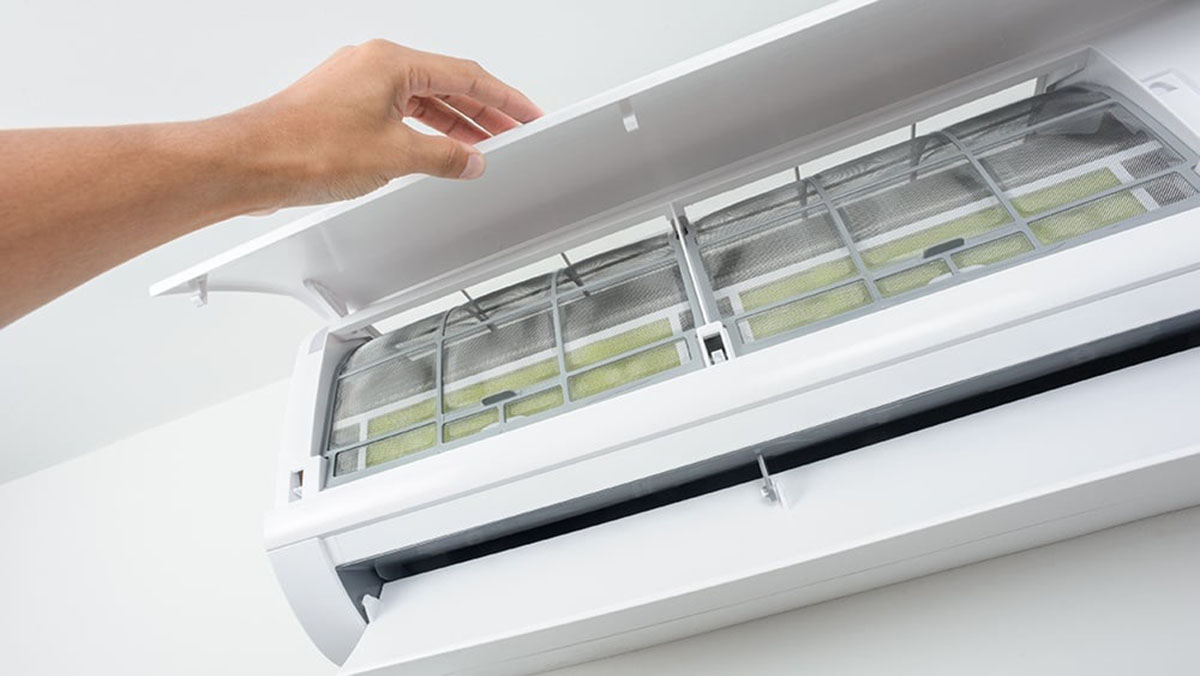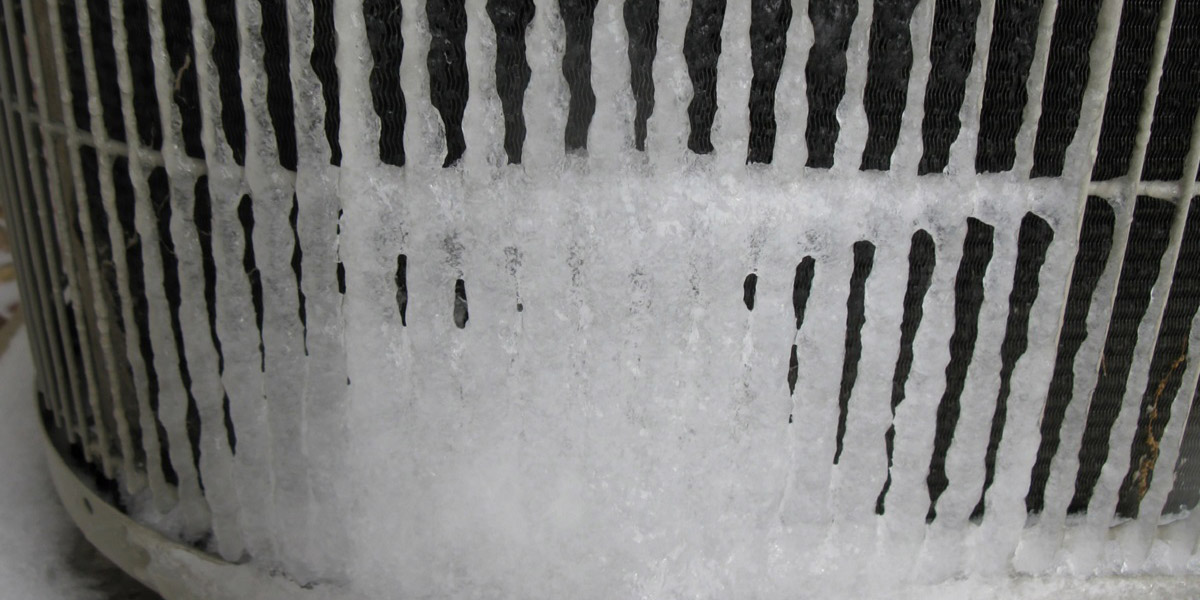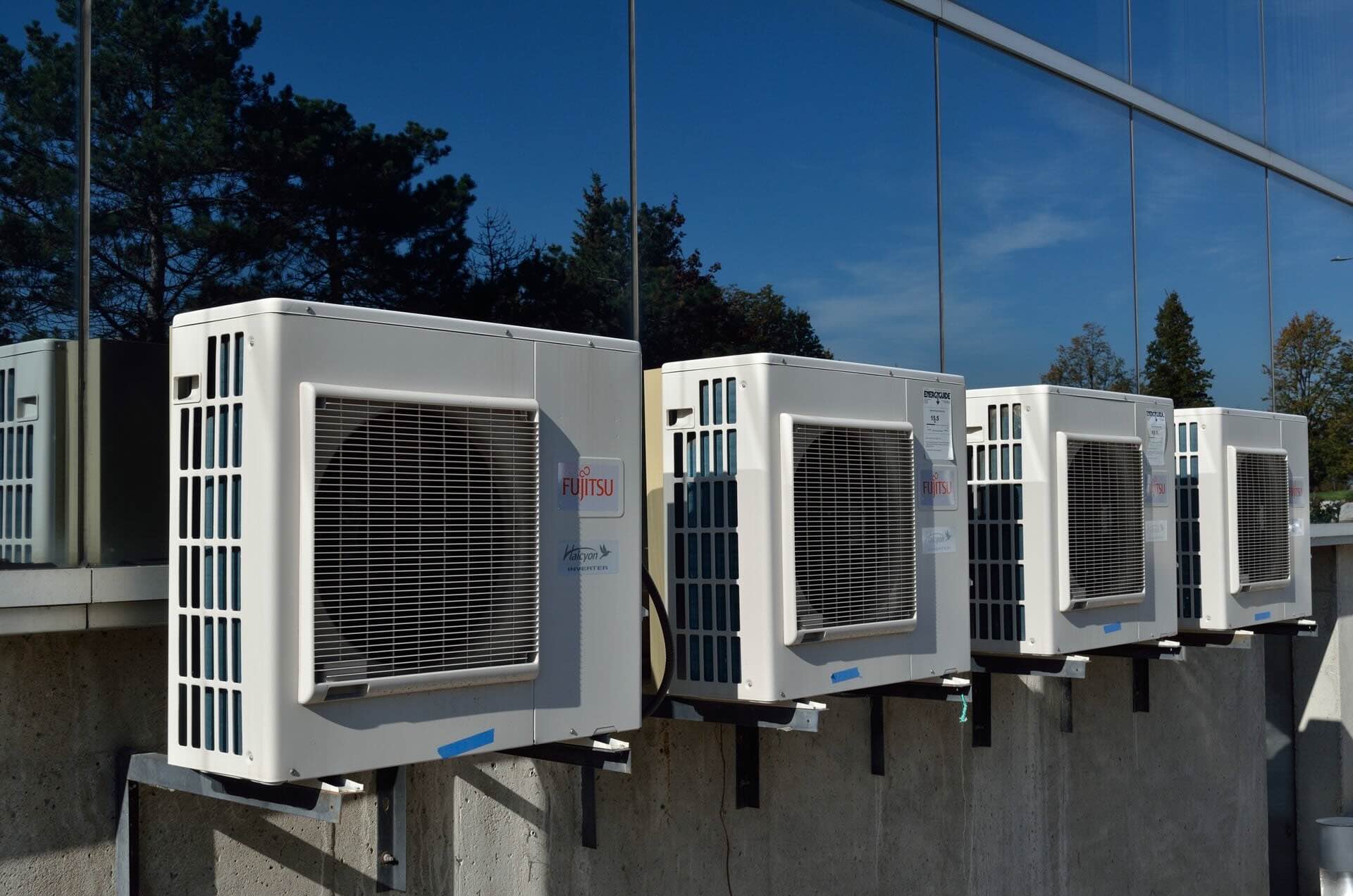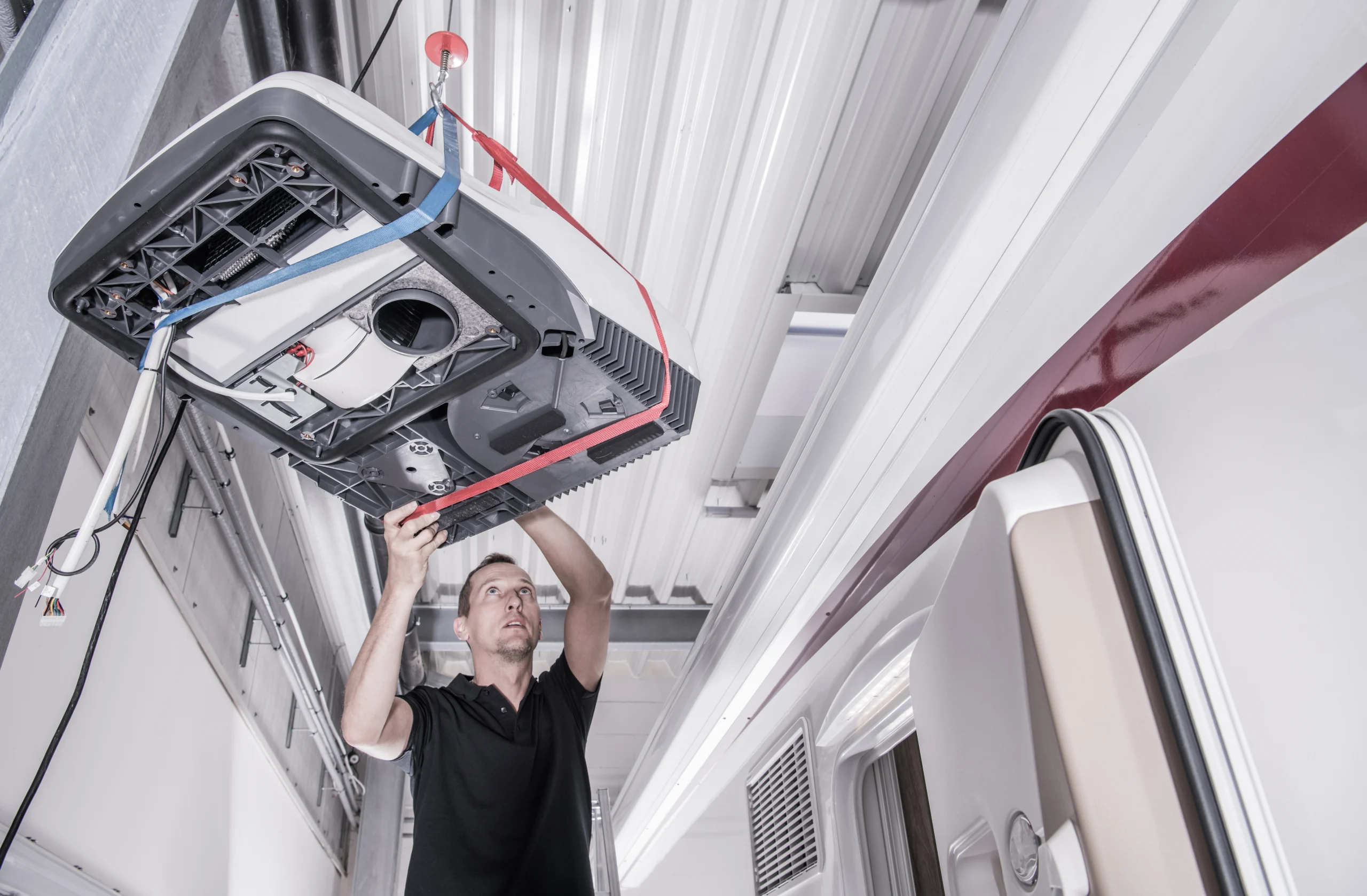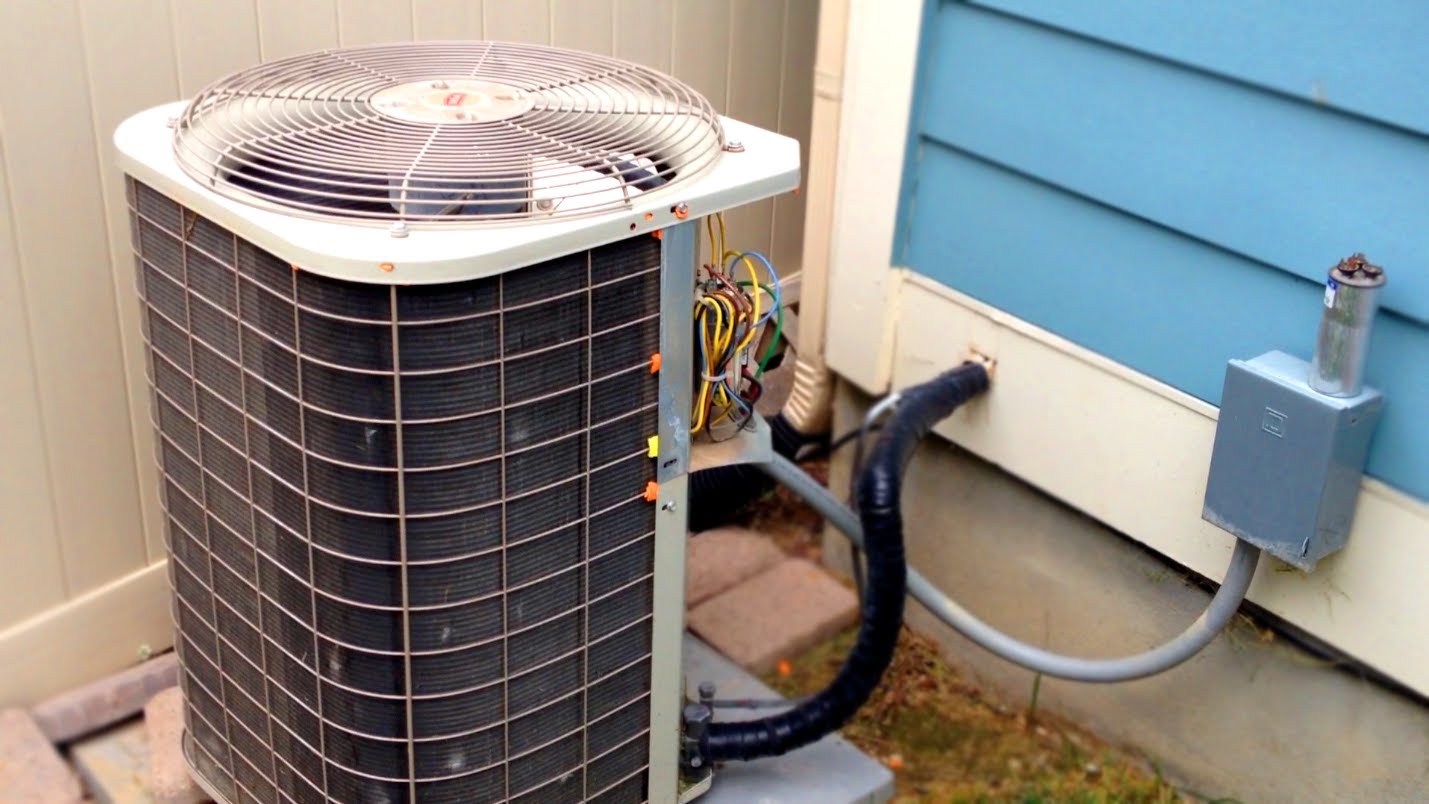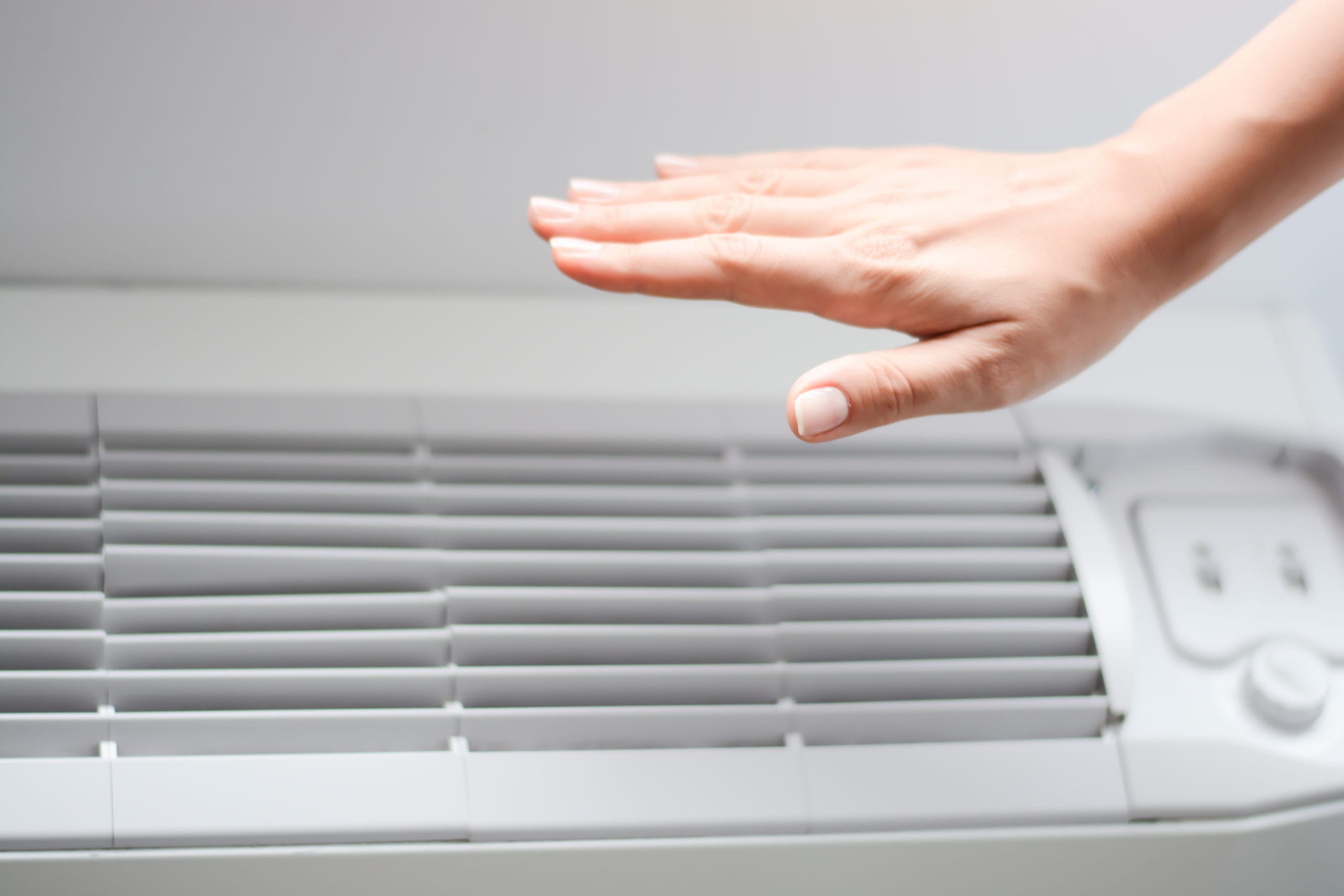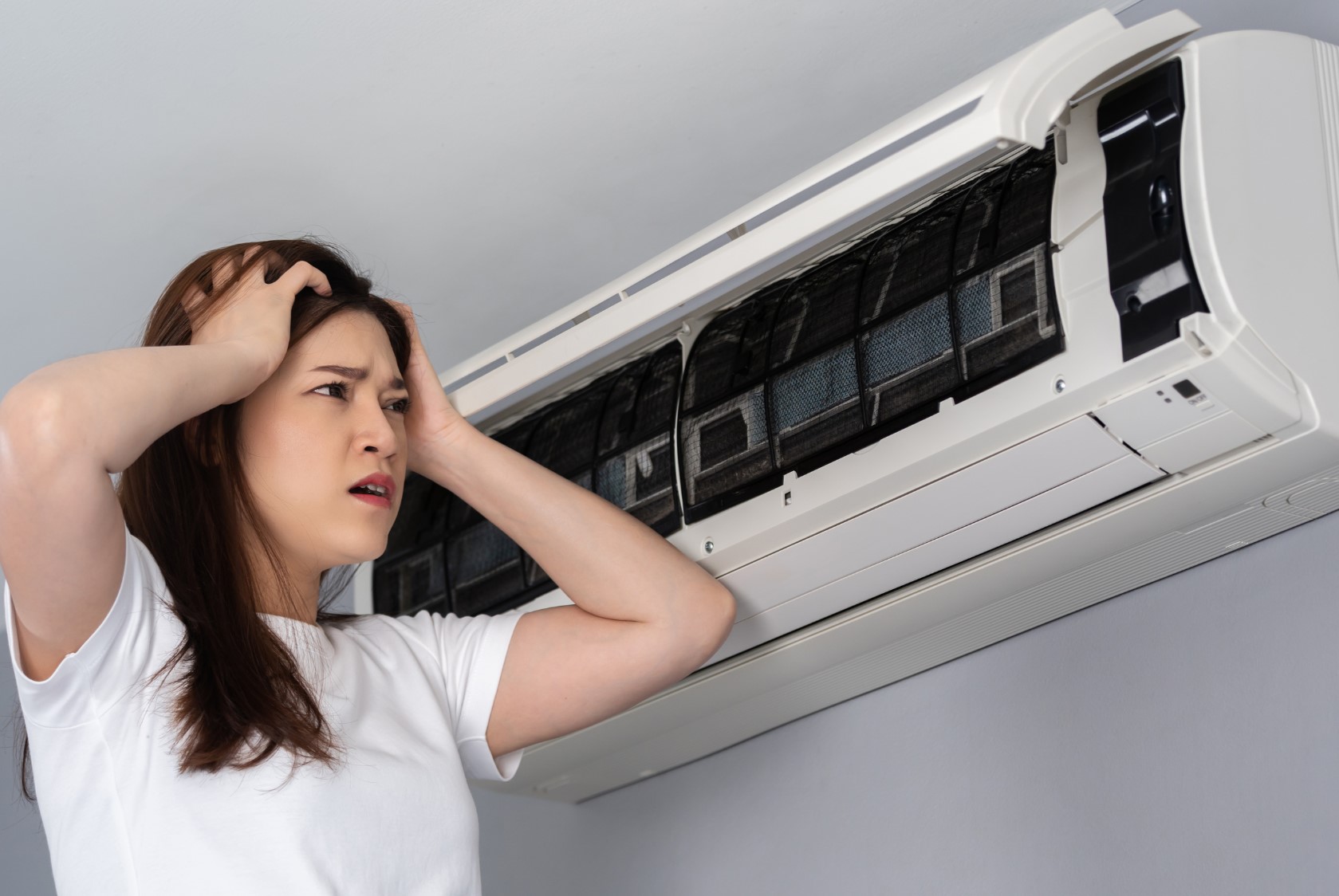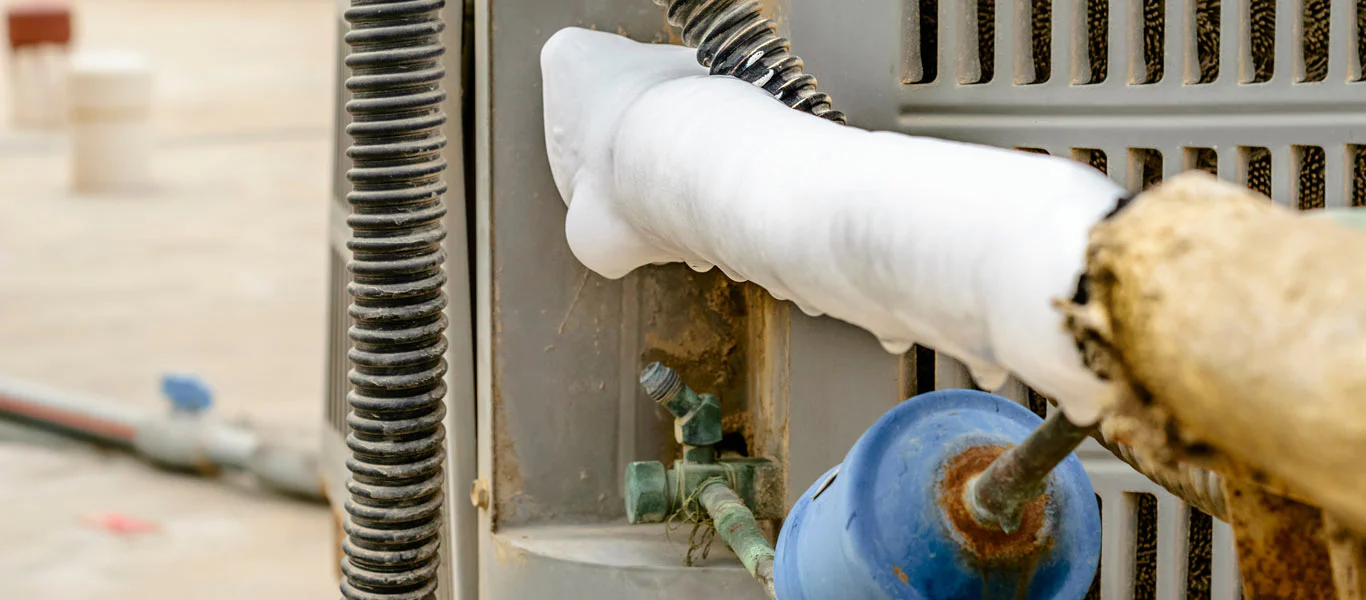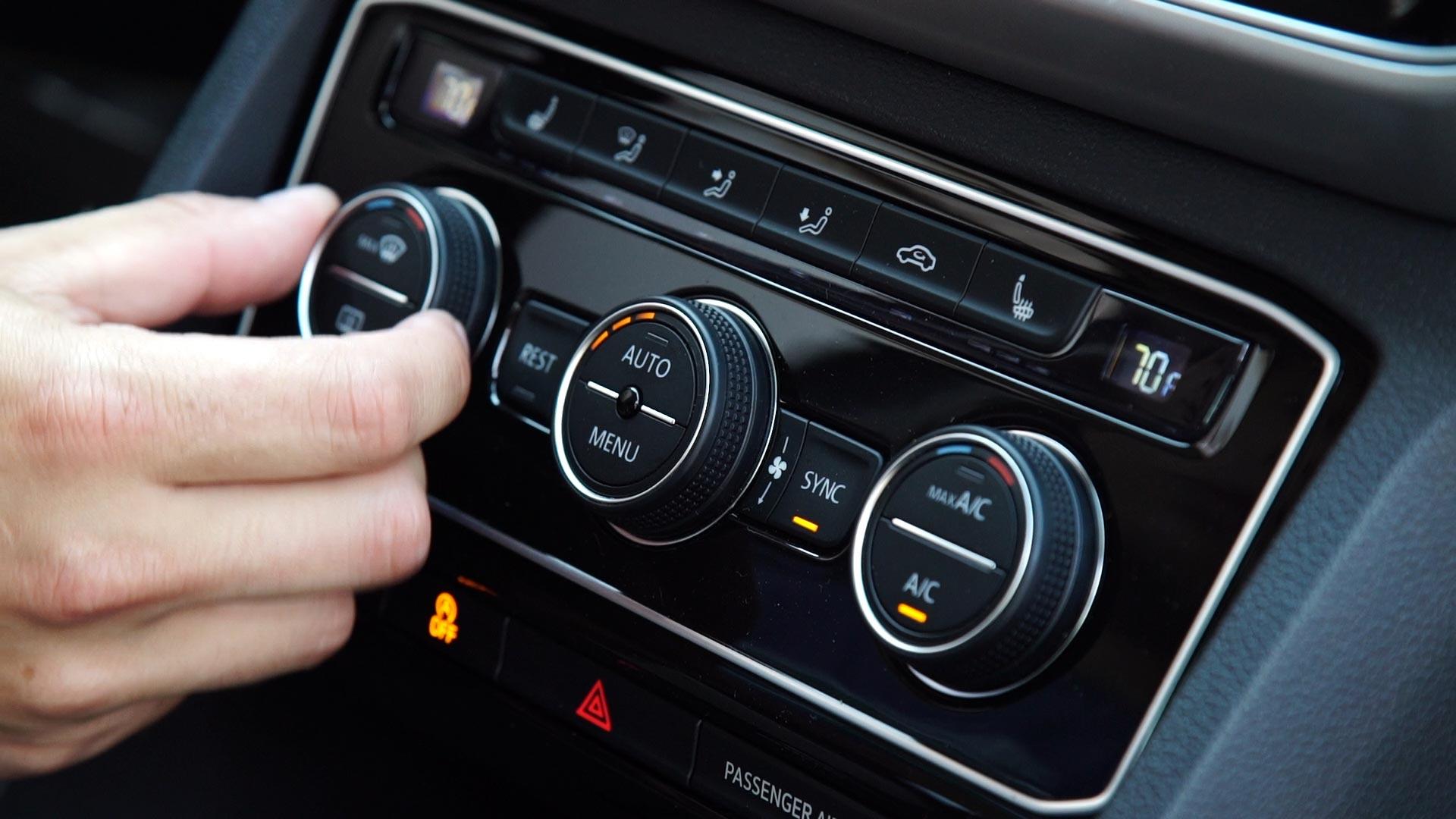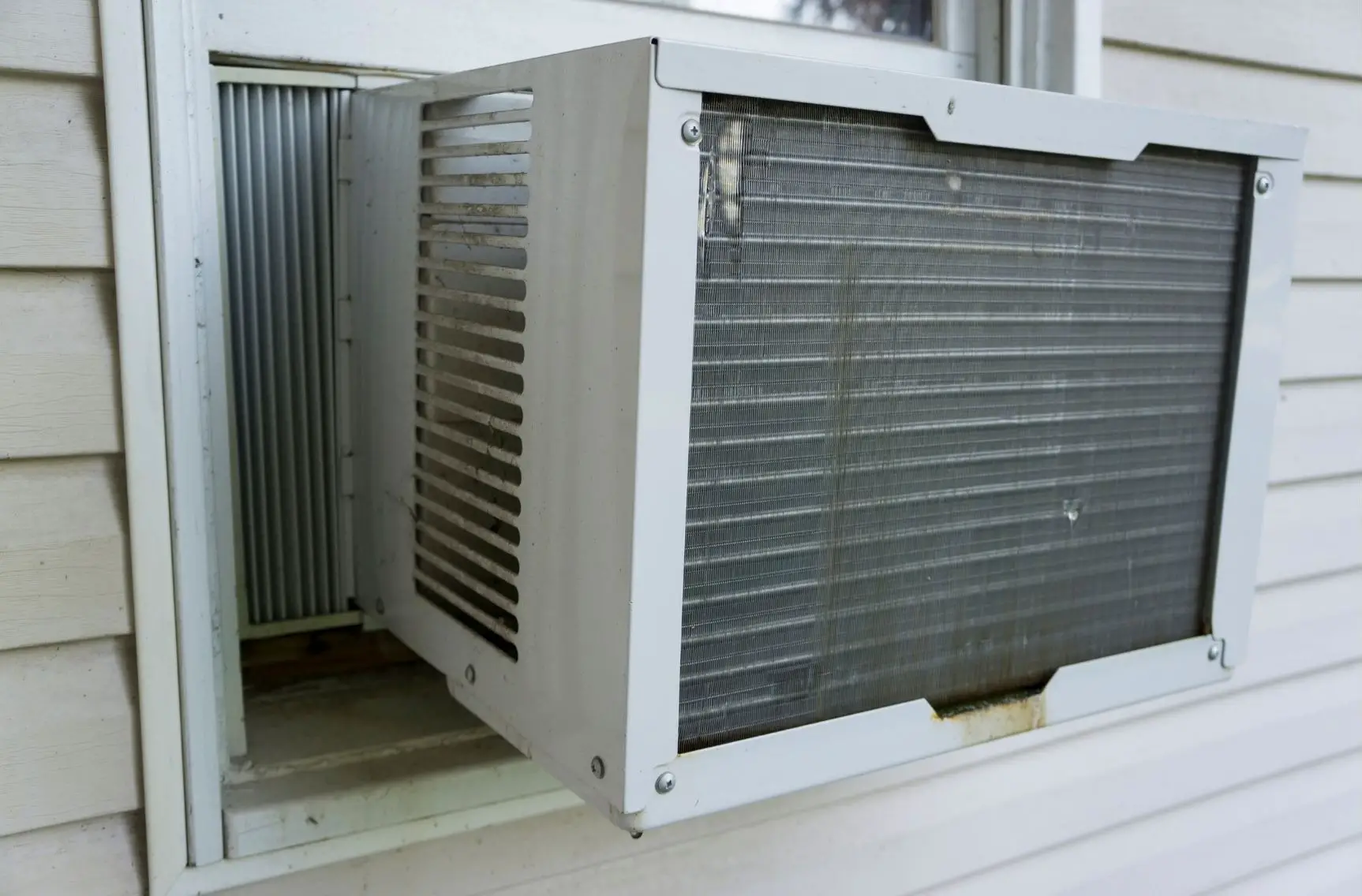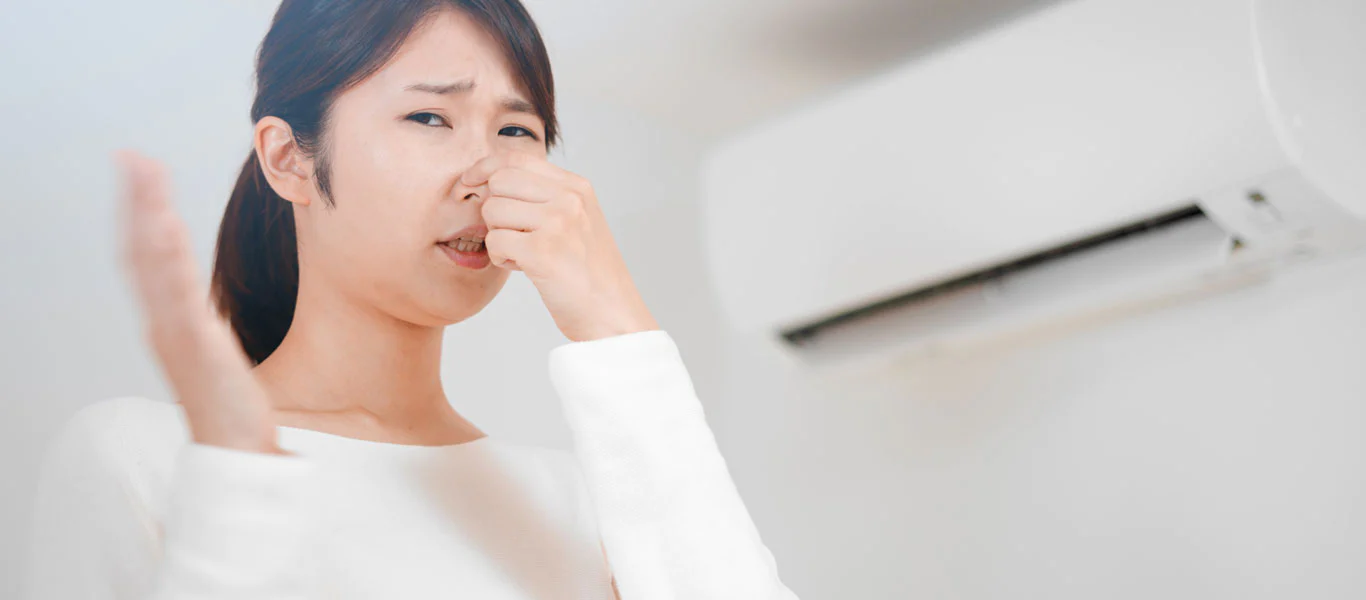Home>Home Maintenance>Why Is My Air Conditioner Rattling
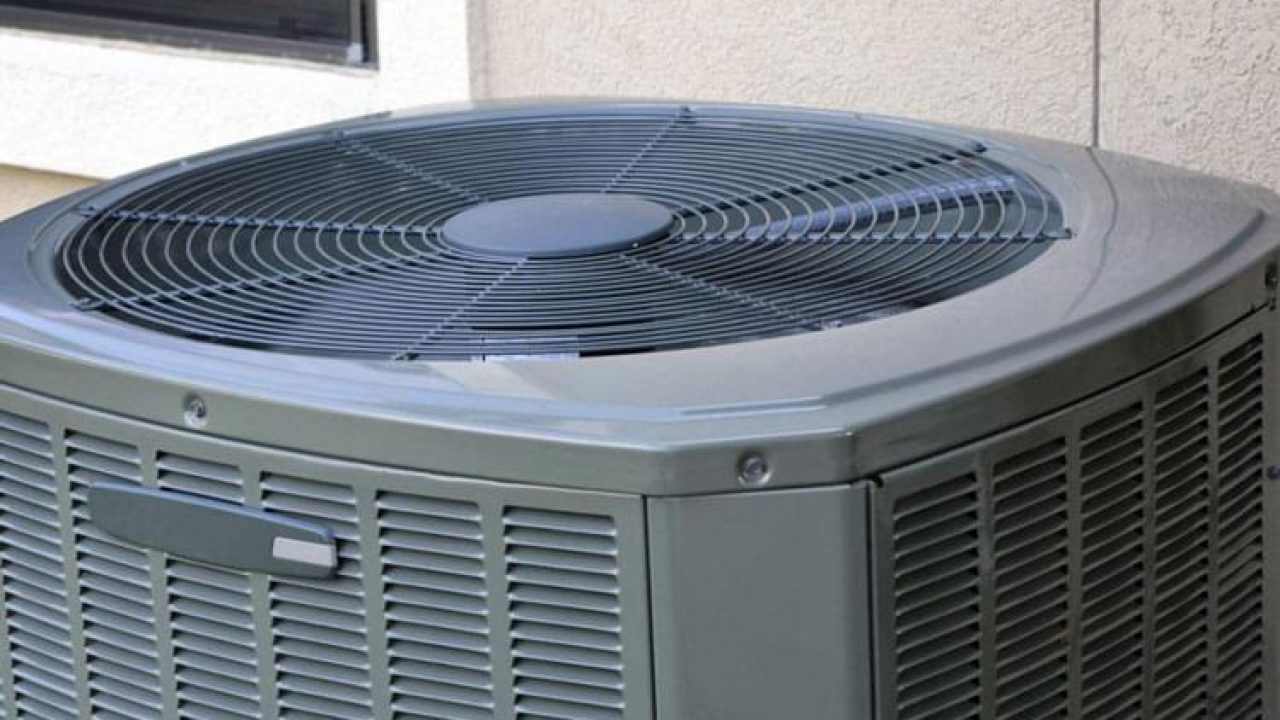

Home Maintenance
Why Is My Air Conditioner Rattling
Modified: March 7, 2024
Discover why your air conditioner is rattling and get expert tips for home maintenance to fix the issue
(Many of the links in this article redirect to a specific reviewed product. Your purchase of these products through affiliate links helps to generate commission for Storables.com, at no extra cost. Learn more)
Introduction
Having a well-functioning air conditioner is essential for maintaining a comfortable and cool indoor environment, especially during hot summer months. However, if you start to notice a rattling noise coming from your air conditioner, it can be quite concerning and disruptive. It not only affects the efficiency and performance of your AC system but can also be a nuisance in your daily life.
In this article, we will explore the possible causes of rattling in air conditioners and provide you with some steps to fix this annoying noise. By understanding the underlying reasons and implementing the necessary measures, you can ensure that your air conditioner operates smoothly and quietly, allowing you to enjoy optimal cooling without any disturbances.
Key Takeaways:
- Keep your air conditioner running smoothly by checking for loose components, changing air filters, and addressing refrigerant leaks. Regular maintenance can prevent rattling noises and ensure a quiet and comfortable indoor environment.
- Don’t let rattling noises disrupt your home! Clear debris, inspect ductwork, and have a professional address compressor and expansion valve issues. Taking action can restore peace and quiet to your living space.
Read more: Why Is My Air Conditioner Clicking
Possible Causes of Rattling in Air Conditioners
If you’re experiencing a rattling noise in your air conditioner, it’s important to identify the root cause to fix the issue effectively. Here are some possible causes of rattling in air conditioners:
- Loose Components: One of the most common causes of rattling is loose components within the air conditioner. This can include fan blades, screws, bolts, or even a loose motor mount. The vibration caused by the loose components leads to the rattling noise.
- Air Filter Issues: Another cause of rattling can be related to the air filters. If the air filters are dirty and clogged, it can restrict the airflow and cause the AC unit to work harder, resulting in a rattling noise. Additionally, if the air filters are not correctly installed, they may not fit securely and can create vibration and noise.
- Refrigerant Leaks: Refrigerant leaks can occur in the AC system, usually due to worn-out or damaged components. In addition to impacting the cooling performance of the AC, refrigerant leaks can also cause rattling noises. The escaping gas can create vibrations and turbulence as it passes through the system.
- Condenser Coil Problems: The condenser coils play a crucial role in the heat transfer process of the air conditioner. If they become bent or damaged, it can affect the efficiency of the AC and lead to rattling noises. The airflow may become restricted, causing the system to work harder and produce more noise.
- Blower Motor Malfunction: Issues with the blower motor can also contribute to rattling noises. If the blower motor components are loose or worn out, it can result in vibrations and abnormal sounds. This can not only impact the noise levels but also affect the airflow, leading to reduced cooling efficiency.
- Debris Accumulation: Another factor that can cause rattling in air conditioners is the accumulation of debris. Outdoor debris such as leaves, twigs, or dirt can find their way into the AC unit and cause vibrations and noises. Similarly, indoor obstacles near the AC unit, like furniture or boxes, can obstruct airflow and create rattling sounds.
- Ductwork Issues: Damaged or improperly sealed ducts can also be a cause of rattling noises in air conditioners. If there are leaks or gaps in the ductwork, it can disrupt the smooth airflow and generate rattling sounds as air passes through the system.
- Compressor Problems: The compressor is a critical component of the air conditioner, responsible for the circulation of refrigerant. If the compressor motor is faulty or experiencing issues, it can produce excessive vibration and noise, resulting in rattling sounds.
- Expansion Valve Faults: The expansion valve controls the flow of refrigerant into the evaporator coil. If the valve gets stuck or malfunctions, it can lead to noise and performance problems in the AC system, including rattling noises.
Identifying the specific cause behind the rattling noise in your air conditioner is crucial for implementing the right solution. In the next section, we will provide you with steps to fix the rattling noise and restore the smooth and quiet operation of your AC system.
Loose Components
One of the main reasons for rattling noise in an air conditioner is loose components. When certain parts of your AC system are not properly secured, they can vibrate and create the rattling noise that you hear. Some common loose components that can cause rattling include:
- Fan Blades: The fan blades in your air conditioner are responsible for circulating air throughout the system. If one or more blades become loose or unbalanced, they can create a rattling noise as they spin. This can happen due to normal wear and tear or if the fan blades were not properly installed.
- Screws and Bolts: The various components of your air conditioner are held together by screws and bolts. Over time, these fasteners may become loose due to the constant vibrations during operation. Loose screws and bolts can cause rattling noises, especially if they are in close proximity to other parts of the system.
- Motor Mount: The motor mount is responsible for holding the motor steady and preventing excessive vibrations. If the motor mount becomes loose or worn out, it can lead to increased vibrations and rattling noises in the air conditioner unit.
To fix rattling caused by loose components, it’s important to carefully inspect your air conditioner and tighten any loose screws, bolts, or fan blades. However, it’s crucial to exercise caution when dealing with electrical components and consider seeking professional assistance if you are unsure about how to proceed. A qualified technician can properly diagnose the issue and tighten or replace any loose components as needed.
Regular maintenance of your air conditioner can help prevent loose components from causing rattling noises. It’s a good practice to schedule annual maintenance checks to ensure that all components are tightened and secured properly.
By addressing loose components promptly, you can restore the smooth and quiet operation of your air conditioner and enjoy a comfortable and peaceful indoor environment.
Air Filter Issues
Air filters play a crucial role in maintaining the air quality and efficiency of your air conditioner. However, when they’re not maintained properly, they can contribute to the rattling noise in your AC system. Here are two common air filter issues that can cause rattling:
- Dirty Air Filters: Over time, air filters can become clogged with dust, dirt, and other particles. When the filters are dirty, they restrict the airflow, causing the air conditioner to work harder to pull in air. This increased strain on the system can result in rattling noises as the components struggle to operate properly.
- Incorrectly Installed Filters: If air filters are not correctly installed, they may not fit securely in their designated slots. This can create gaps or loose connections, which can cause vibrations and rattling noises as air passes through the filters.
To address air filter issues, it’s important to regularly clean or replace your air filters according to the manufacturer’s recommendations. Clean filters allow for proper airflow, reducing strain on your AC system and minimizing the risk of rattling noises. Additionally, when installing new filters, ensure they are correctly positioned and securely placed to prevent any gaps or loose connections.
Regularly inspecting and maintaining your air filters is a simple yet essential step in preventing rattling noises in your air conditioner. By keeping your filters clean and properly installed, you can not only maintain the efficiency of your AC system but also enjoy a quieter and comfortable indoor environment.
Refrigerant Leaks
Refrigerant plays a crucial role in the cooling process of your air conditioner. It absorbs the heat from the indoor air and releases it outside, helping to cool your home. However, if your air conditioner is experiencing a refrigerant leak, it can lead to rattling noises and affect the overall performance of the system.
Here are some signs that may indicate a refrigerant leak:
- Insufficient Cooling: If the refrigerant level in your air conditioner is low due to a leak, it can result in inadequate cooling. You may notice that your home is not as cool as it should be, despite your air conditioner running constantly.
- Frozen Coils: When there is a refrigerant leak, the evaporator coils can become too cold, causing condensation to freeze on the coils. This can result in reduced airflow and rattling noises as the restricted air passes through the iced-up coils.
- Hissing or Bubbling Sounds: If you hear hissing or bubbling sounds near your air conditioner, it could be an indication of a refrigerant leak. The escaping refrigerant can create these noise manifestations.
- Increased Energy Bills: A refrigerant leak can cause your air conditioner to work harder and run for longer periods of time, leading to higher energy consumption and increased utility bills.
Refrigerant leaks not only affect the cooling performance of your air conditioner but can also lead to rattling noises. As the refrigerant escapes, the pressure within the system can fluctuate, causing vibrations that result in rattling sounds.
If you suspect a refrigerant leak in your air conditioner, it’s crucial to contact a professional HVAC technician to assess and repair the issue. They will be able to locate the leak, repair it, and recharge the refrigerant to the appropriate levels. Attempting to fix a refrigerant leak on your own can be dangerous and may cause further damage to your AC system.
By addressing refrigerant leaks promptly, you can restore the proper functioning of your air conditioner, reduce rattling noises, and ensure optimal cooling performance.
Read more: Why Is My Air Conditioner Not Turning On
Condenser Coil Problems
The condenser coils in your air conditioner play a critical role in releasing heat from the system. They work in conjunction with the compressor to transfer heat from the refrigerant to the outdoor air. However, if the condenser coils become bent or damaged, it can impact the efficiency of your AC system and lead to increased noise levels, including rattling noises.
Here are some key points about condenser coil problems:
- Bent or Damaged Coils: Over time, the condenser coils can become bent or damaged due to various factors, such as debris buildup, accidental impact, or aging. Bent coils can obstruct the normal airflow and disrupt the heat transfer process, resulting in reduced cooling efficiency and increased noise.
- Impacts on AC Efficiency: When the condenser coils are bent or damaged, the heat dissipation process is hindered, causing the air conditioner to work harder to achieve the desired cooling. This increased strain can lead to decreased energy efficiency and higher energy consumption.
- Noise Levels: Bent or damaged condenser coils can create rattling or vibrating noises in your air conditioner. As the air flows past the uneven or obstructed coils, it can generate turbulence and vibrations, resulting in the audible rattling sounds.
If you suspect that the condenser coils are causing rattling noises in your air conditioner, it’s crucial to contact a professional technician to assess the situation. They will be able to inspect the coils and determine the best course of action, which may involve straightening bent coils or replacing damaged ones.
Regular maintenance of your air conditioner, including cleaning the condenser coils, can help prevent issues and prolong the lifespan of the coils. Additionally, it’s important to ensure that the outdoor unit is clear of debris, vegetation, and obstructions to maintain proper airflow and prevent coil damage.
By addressing condenser coil problems promptly, you can restore the efficiency of your air conditioner, reduce noise levels, and enjoy a more comfortable and peaceful indoor environment.
Blower Motor Malfunction
The blower motor in your air conditioner is responsible for circulating the air throughout the system. It plays a crucial role in maintaining airflow and ensuring efficient cooling. However, when the blower motor malfunctions, it can lead to a variety of issues, including rattling noises.
Here are some key points about blower motor malfunction:
- Loose or Worn-Out Blower Motor Components: Over time, the components of the blower motor, such as the fan blades, belt, or motor mounts, can become loose or worn out. This can result in increased vibration and rattling noises as the motor operates.
- Effects on Airflow: When the blower motor components are loose or worn out, it can affect the airflow in your air conditioner. Reduced airflow can lead to inefficient cooling and discomfort in your home.
- Effects on Noise Levels: A malfunctioning blower motor can produce abnormal sounds, including rattling noises, as its components vibrate or rub against each other. This can disrupt the quiet operation of your air conditioner and cause annoyance.
If you suspect that the blower motor is causing rattling noises in your air conditioner, it’s recommended to have it inspected and repaired by a professional HVAC technician. They will be able to diagnose the exact issue and determine whether tightening loose components or replacing worn-out parts is necessary.
Regular maintenance of your air conditioner can help prevent blower motor malfunctions. Professional cleaning of the blower motor and regular inspections can ensure that all components are in good working order and prevent issues that may lead to rattling noises.
By addressing blower motor malfunctions promptly, you can restore proper airflow, reduce noise levels, and enjoy a comfortable and quiet indoor environment.
Check for loose screws or bolts in the air conditioner unit. Tighten any that are found to reduce rattling and improve performance.
Debris Accumulation
Debris accumulation in and around your air conditioning unit can be a common cause of rattling noises. It’s important to keep the area clean and free from any obstructions to ensure optimal performance of your AC system.
Here are two main types of debris accumulation that can lead to rattling sounds:
- Outdoor Debris and Vegetation: Leaves, twigs, dirt, and other debris can find their way into the outdoor unit of your air conditioner. When this debris accumulates, it can interfere with the fan, motor, and other components, leading to vibrations and rattling noises. Additionally, overgrown vegetation near the unit can obstruct airflow and contribute to vibration and noise.
- Indoor Obstacles Near the AC Unit: Inside your home, make sure there are no objects or furniture obstructing the airflow around the air conditioning unit. When objects are placed too close to the unit, they can disrupt the airflow, create turbulence, and contribute to rattling noises.
To address debris accumulation issues, follow these steps:
- Outdoor Cleaning: Regularly inspect and clean the outdoor unit of your air conditioner. Remove any debris, vegetation, or objects that may have collected around the unit. Use a soft brush or vacuum cleaner to gently clean the fan blades and other accessible components.
- Tidy Indoor Area: Ensure that there are no objects, furniture, or other obstacles blocking the airflow around the indoor unit. Keep the area surrounding the unit clear and free from any potential sources of vibration or noise.
Regular maintenance and cleaning of your air conditioning unit, both indoors and outdoors, can help prevent debris accumulation and minimize the risk of rattling noises. By maintaining a clean and obstruction-free environment, you can promote optimal airflow, improve the efficiency of your air conditioner, and enjoy a quiet and comfortable living space.
Ductwork Issues
The ductwork in your HVAC system plays a critical role in delivering conditioned air to different areas of your home. However, if the ducts are damaged or improperly sealed, it can lead to rattling noises and affect the overall performance of your air conditioner.
Here are some key points about ductwork issues:
- Damaged or Improperly Sealed Ducts: Over time, ductwork can develop leaks, cracks, or loose connections. These issues can occur due to aging, shifting foundations, or poor initial installation. Damaged or improperly sealed ducts can result in air leakage, where conditioned air escapes before reaching its intended destination.
- Airflow Restrictions: When there are leaks or gaps in the ductwork, it can disrupt the smooth airflow, causing turbulence and restrictions. As air tries to pass through the compromised areas, it can create rattling noises due to the increased air pressure and turbulence.
To address ductwork issues, consider the following steps:
- Inspect and Repair Leaks: Conduct a visual inspection of your ductwork to identify any obvious signs of damage or leaks. Seal any gaps or cracks using mastic sealant or metallic tape. For more extensive damage, consider contacting a professional HVAC technician to assess and repair the ductwork.
- Ensure Proper Sealing: Check that all connections between duct sections are properly secured and sealed. Use appropriate sealing materials, such as foil tape or mastic, to ensure a tight and secure seal.
Regular inspection and maintenance of your ductwork are crucial to preventing air leaks and minimizing rattling noises. Additionally, ensuring proper insulation and insulation sleeves can reduce temperature changes within the ducts and minimize vibrations that can contribute to rattling sounds.
By addressing ductwork issues and ensuring proper sealing, you can improve the airflow, minimize rattling noises, and enhance the efficiency of your air conditioner.
Read more: Why Is My Air Conditioner Crackling
Compressor Problems
The compressor is a crucial component of your air conditioning system. It is responsible for compressing the refrigerant and circulating it through the system to facilitate the cooling process. When the compressor malfunctions, it can result in various issues, including vibration and noise problems.
Here are some key points about compressor problems:
- Faulty Compressor Motor: The compressor motor can experience issues due to wear and tear, electrical problems, or mechanical failures. When the motor starts to malfunction, it can create excessive vibration and noise, including rattling noises. These vibrations can transfer to other components of the air conditioning system, intensifying the noise levels.
- Vibration and Noise Issues: A faulty compressor can generate vibration throughout the air conditioner, causing rattling noises. These noises may be particularly noticeable if the compressor is not securely mounted or if there are loose or worn-out components within the compressor assembly.
If you suspect that your air conditioner’s compressor is causing rattling noises, it’s essential to have a professional HVAC technician assess the situation. They will be able to diagnose the problem with the compressor and determine the appropriate course of action, whether it involves repairing or replacing the compressor or its components.
Compressor issues are complex and should only be handled by qualified professionals due to the electrical and mechanical nature of the components involved. Attempting to repair or replace the compressor on your own can be dangerous and may lead to further damage to the system.
Regular maintenance, including annual inspections by a professional technician, can help identify potential compressor problems early on. By addressing compressor issues promptly, you can restore the smooth and quiet operation of your air conditioning system, ensuring optimal cooling performance and minimizing noise disturbances.
Expansion Valve Faults
The expansion valve in your air conditioner is responsible for regulating the flow of refrigerant into the evaporator coil. It plays a crucial role in maintaining the balance and efficiency of the cooling process. When the expansion valve becomes stuck or malfunctions, it can lead to noise and performance issues in your air conditioning system.
Here are some key points about expansion valve faults:
- Stuck or Malfunctioning Valve: The expansion valve can become stuck in a partially open or closed position, resulting in improper regulation of refrigerant flow. This can lead to inadequate cooling and temperature imbalances in the system. In some cases, the expansion valve may fail to open or close properly, causing disruptions in the refrigerant flow and leading to noise and performance problems.
- Noise and Performance Problems: When the expansion valve is not functioning correctly, it can impact the overall performance of your air conditioner. The imbalanced flow of refrigerant can cause the system to work harder, resulting in increased noise levels. This can manifest as rattling noises and other abnormal sounds as the refrigerant passes through the valve and other system components.
If you suspect that the expansion valve is causing noise and performance issues in your air conditioner, it’s important to contact a professional HVAC technician. They will be able to diagnose the problem and determine the best solution, whether it involves repairing or replacing the expansion valve.
Expansion valve issues require specialized knowledge and tools, so it’s recommended to leave the repairs or replacements to qualified professionals. They will ensure that the expansion valve is properly calibrated and functioning as intended, restoring the efficiency and performance of your air conditioning system.
Regular maintenance of your air conditioner, including routine inspections by a professional technician, can help identify potential expansion valve faults. By addressing these issues promptly, you can minimize noise disturbances, improve cooling performance, and maintain a comfortable indoor environment.
Steps to Fix the Rattling Noise in Air Conditioners
If you’re experiencing a rattling noise in your air conditioner, here are some steps you can take to address the issue and restore the smooth and quiet operation of your AC system:
- Check and tighten loose components: Inspect your air conditioner for any loose components, including fan blades, screws, bolts, or the motor mount. Carefully tighten them to eliminate vibrations and rattling noises.
- Change or clean air filters: Dirty or clogged air filters can cause airflow restrictions and increased strain on your AC system, leading to rattling noises. Regularly clean or replace your air filters to ensure proper airflow and minimize noise.
- Address refrigerant leaks: If you suspect a refrigerant leak in your air conditioner, contact a professional HVAC technician to locate and repair the leak. Adequate refrigerant levels are essential for optimal cooling performance and noise reduction.
- Straighten or replace bent condenser coils: Bent or damaged condenser coils can disrupt airflow and cause rattling noises. Straighten them if possible or consider replacing them to restore efficiency and minimize noise levels.
- Repair or replace faulty blower motor: A malfunctioning blower motor can result in vibrations and unusual noises. Have it inspected by a professional technician and repair or replace worn-out components as needed.
- Remove debris and clean surroundings: Clear away any outdoor debris or vegetation that may obstruct the airflow or create vibrations. Indoors, keep the area around the AC unit free from obstacles or furniture that could affect airflow and cause noise.
- Inspect and repair ductwork: Damaged or improperly sealed ducts can contribute to rattling noises. Inspect your ductwork for leaks or gaps and seal them properly to ensure smooth airflow and minimize noise disruptions.
- Repair or replace faulty compressor: A faulty compressor can produce excessive vibration and noise, including rattling sounds. Consult a professional technician to diagnose the issue and determine if repairs or a compressor replacement is necessary.
- Fix or replace malfunctioning expansion valve: A malfunctioning expansion valve can lead to noise and performance problems. Have a professional technician assess and repair the expansion valve or consider replacing it if necessary.
It’s important to note that while some of these steps can be performed by homeowners, complex repairs or replacements should be carried out by qualified HVAC technicians. Regular maintenance and professional inspections are also essential to prevent future rattling noises and ensure the efficient operation of your air conditioner.
By following these steps and addressing the underlying causes of the rattling noise, you can enjoy a quiet and comfortable indoor environment while maximizing the performance of your air conditioning system.
Conclusion
Experiencing a rattling noise in your air conditioner can be frustrating and disruptive. However, with a bit of knowledge and some troubleshooting, you can effectively address the issue and restore the smooth and quiet operation of your AC system.
In this article, we explored nine possible causes of rattling noises in air conditioners. From loose components and air filter issues to refrigerant leaks and condenser coil problems, each issue can contribute to the rattling noise and impact the performance of your air conditioner.
To fix the rattling noise, we provided you with a comprehensive list of steps to follow. These steps include checking and tightening loose components, changing or cleaning air filters, addressing refrigerant leaks, straightening or replacing bent condenser coils, repairing or replacing faulty blower motors, removing debris and cleaning the surroundings, inspecting and repairing ductwork, repairing or replacing faulty compressors, and fixing or replacing malfunctioning expansion valves.
It’s important to note that while some tasks can be done by homeowners, it is always advisable to consult a professional HVAC technician for complex repairs or replacements. They have the expertise and tools to identify and address specific issues, ensuring the proper functioning of your air conditioner.
Regular maintenance and inspections are key to preventing future rattling noises and maximizing the efficiency of your air conditioning system. By addressing these issues promptly, you can enjoy a comfortable and quiet indoor environment without any disturbances.
Remember, a well-maintained air conditioner not only provides effective cooling but also enhances your overall comfort and peace of mind. So, if you’re experiencing rattling noises in your air conditioner, take action and follow the steps outlined in this article to ensure a cool and tranquil home.
Frequently Asked Questions about Why Is My Air Conditioner Rattling
Was this page helpful?
At Storables.com, we guarantee accurate and reliable information. Our content, validated by Expert Board Contributors, is crafted following stringent Editorial Policies. We're committed to providing you with well-researched, expert-backed insights for all your informational needs.
